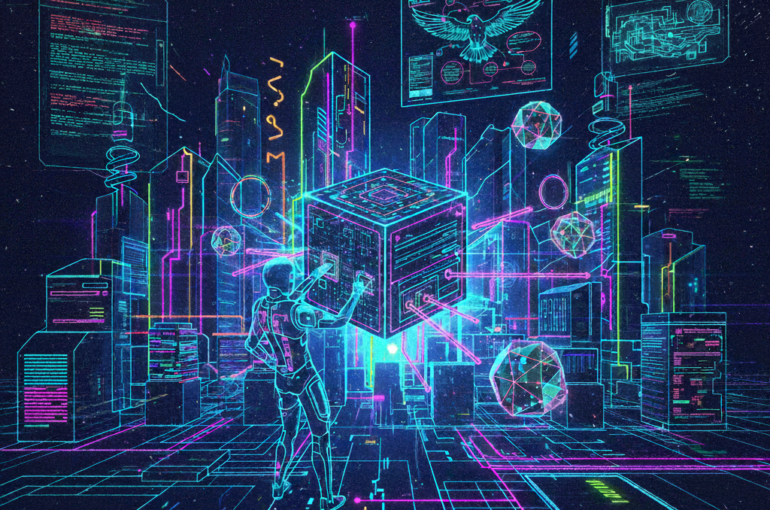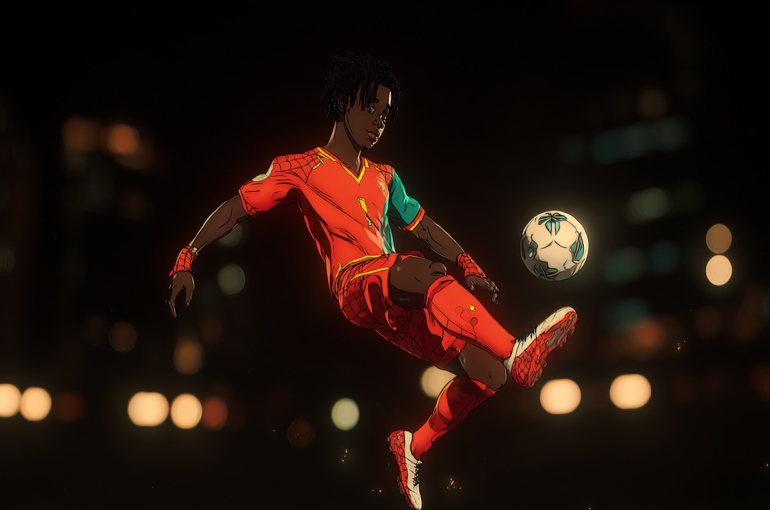Black Mirror in Real Life, AI Actors in Hollywood
Recent revelations from Hollywood shed light on a pivotal concern for the global art scene, as artificial intelligence (AI) reshapes the entertainment industry in unprecedented ways. In an article published by The Verge, Hollywood actors plan to go on strike July 14th, but that is not the only update, in a bombshell reveal, Duncan Crabtree-Ireland, SAG-AFTRA’s chief negotiator, revealed a proposal from The Alliance of Motion Picture and Television Producers (AMPTP), “Hollywood producers”, wanting actors’ AI replicas, forever, for free. If this sounds familiar, a recent episode of Black Mirror, “Joan is Awful” took on the same premise with Selma Hayek’s AI double performing questionable and unflattering acts throughout the episode, without her explicit consent.
The AMPTP proposed using actors’ digital likenesses to be owned by their studios, potentially in perpetuity. While AMPTP partially denied these claims, asserting that actors’ consent and compensation would be required for extended use of their digital images, the controversy raises critical questions about the impact of AI on art and culture, especially in regions like the Caribbean where the connection between art and tourism contributes heavily to economic growth.
AI’s Impact on Caribbean Arts
This isn’t just a Hollywood issue this is an Arts issue. From calypso to reggae, the Caribbean boasts a rich tapestry of musical styles that define the region’s identity, drawing countless tourists every year. The distinct rhythms and vibrant performances provide not only an immersive experience but also an economic stimulus. Consequently, the unchecked replication of local artists’ work is likely to have profound ramifications on the Caribbean. AI-created replicas could potentially dilute the authenticity of these unique musical styles, impacting tourism and the economic livelihood of countless individuals.
AI can enable more creativity, collaboration and quality of work if used responsibly and ethically. For example, an Artist could replicate his art style and generate thousands of new pieces in hours, resulting in a huge increase in inventory for clients to choose from, and even customized pieces just for them. The Artist has more revenue, more global exposure and more time to create. The potential flipside, the value of his Art declines, due to how accessible it is and their use of AI.
The prospect of unregulated AI use in art could pose an existential threat to the authenticity and cultural heritage of the Caribbean. Authenticity in art fosters a deep connection with an audience, a connection that may be compromised if a creator’s work can be reproduced indefinitely and without their express permission. This scenario threatens to erode cultural diversity, disrupt local economies, and ultimately undermine the distinctive character that has shaped the Caribbean’s artistic identity for generations. This emerging dilemma necessitates greater public interest, robust regulation and protections to preserve the generational value and livelihood of our great asset, our creativity.
Where do we start?
First and foremost, a nuanced understanding of AI’s potential implications for art and culture is essential. Public discourse must be encouraged, enabling communities to consider the far-reaching consequences of these technological advances and formulate thoughtful responses. But, beyond the hype and science fiction, we need public dialogue with seasoned experts in AI, Art, Law, Entertainment and more.
From a regulatory perspective, clear legislation that protects artists and performers from exploitation is urgently needed. Rules need to be put in place to ensure that artists have control over their digital likenesses, especially concerning their perpetual use. A fair compensation system should be established to reward artists for their contributions and ensure the continuation of their craft. Moreover, international cooperation is required to safeguard regional artistic traditions in an increasingly globalized world. Now, this is not specific to the use of generational AIs like deepfakes, but the regulations must be dynamic enough to account for new ways of utilizing technology that could harm the rights of artists and the art itself. “AI is a tool, it can be used to protect and preserve our Art and Heritage or dilute them for quick profits, we need to collectively decide”, said the founder of StarApple AI, Adrian Dunkley.
The call to arms from Hollywood actors is serving as a wake-up call for the rest of the world. The ever-increasing capabilities of AI demand closer scrutiny, particularly within the arts. It is vital that as we move forward, we ensure that the benefits of these advancements do not come at the cost of cultural heritage and artistic integrity. The time for conversation, regulation, and public engagement is now. We must take action to preserve the diversity and richness of our global cultural tapestry.
Other articles
-

Is Artificial Intelligence the same as Machine Learning?
In the rapidly evolving world of technology, terms like Artificial Intelligence (AI) and Machine Learning (ML) are often used interchangeably. However, while they are closely related, they are not the same thing. In this blog post, we’ll dive into the intricacies of AI and ML, unravel their differences, and explore how they are shaping our […]
Enroll -

The AI-Powered Holiday: Smart Technology for Deeper Human Connection
The scent of cinnamon and pine fills Sarah’s kitchen as she reviews her holiday timeline on her tablet. What might appear to be simple meal planning actually represents a sophisticated collaboration between human intention and artificial intelligence. Her AI assistant has analyzed three years of family preferences, dietary restrictions, and cooking success rates to suggest […]
Enroll -

AI Agents Are Rewriting the Rules of Cyberespionage
The digital battlefield has evolved beyond recognition. While cybersecurity experts once tracked individual hackers and their signature malware, today’s threat landscape resembles something closer to a biological ecosystem. Autonomous AI agents now operate independently, learning from failures, adapting to defences, and coordinating attacks with a sophistication that would make military strategists pause. Recent intelligence reports […]
Enroll -

Caribbeans Can Win the World Cup with AI – The Island Blueprint for Global Football Glory
When people speak about the World Cup they often picture Europe or South America. Yet the Caribbean has entered a rare moment in football history. Curaçao has already qualified for 2026. Haiti is in. Jamaica and Suriname are still pushing through the playoffs. This is the first time in living memory that the region has […]
Enroll
